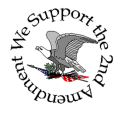
When Is A Nazi Not A Nazi?
Answer: when it's not a part of Adolph Hitler's Germany between ~1933 and 1945.
At least, according to several master debators who scream that to make any reference to Nazism in regards to current-day United States of America is to ruin one's argument. This morning, Doug MacIntyre, morning talk show guy on KABC-AM in El Pueblo de Los Angeles, made just this argument with reference to Joy Behar's having compared Donald Rumsfeld to Adolph Hitler, on the tv talk show "The View," this morning.
First, I wouldn't call Rumsfeld nor any other member of the Bush administration Nazis--in spite of all the evidence to the contrary. What's happening in the United States has been progressing for many decades, and George W Bush and his administration have simply continued a long-established trend--as his father did before him.
Nazism is merely a contraction of the German phrase Nationalsozialistische Deutsche Arbeiterpartei, which means, National Socialist German Workers Party. It also refers to that period in German history, called the Third Reich, during which Adolph Hitler was the nation's leader.
There are, in fact many comparisons between the recent United States and the German Third Reich, and they are detailed in Leonard Peikoff's 1982 book, "The Ominous Parallels."
The major differences between the two are that we can still vote, more or less in accordance with the US Constitution (many disagree about what that's worth), and that the American press and the internet are still more or less free.
We can, though, accurately refer to the current-day United States government as a fascist government. Fascism is defined by Dictionary.com as "a governmental system led by a dictator having complete power, forcibly suppressing opposition and criticism, regimenting all industry, commerce, etc., and emphasizing an aggressive nationalism and often racism."
Now, we don't quite have a full dictatorship yet, though recent residents of the White House exhibit many dictator-like traits, such as the propensity to "find a way" to do what they want done, with or without the authorization of the US Constitution, and the considering of themselves as something "above" the common person.
How much closer to a dictatorship-in-fact do we want to come?
My point is: Nazism and fascism are political systems each with precise definitions. It's indeed possible to make comparisons between these systems and capitalism, and it ought be done often. Only by making careful and precise comparisons and discussions can reality be known and described, thus making reality more clear and making changes poisssible.
Nazism and fascism are loaded words, 'tis true, but this is to the good. They awaken the mind and aid the focus, by their mere invocation. Some of us need to be awakened, it seems.
I don't agree with Behar's silly little quip, partly because I don't think she has a clue what she's saying, but I'm certainly not offended by the use of these loaded terms to draw attention to one's point.
They've killed Freedom! Those bastards!
Warm regarrds,
Col. Hogan
Stalag California






No comments:
Post a Comment